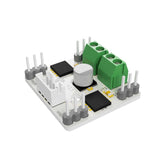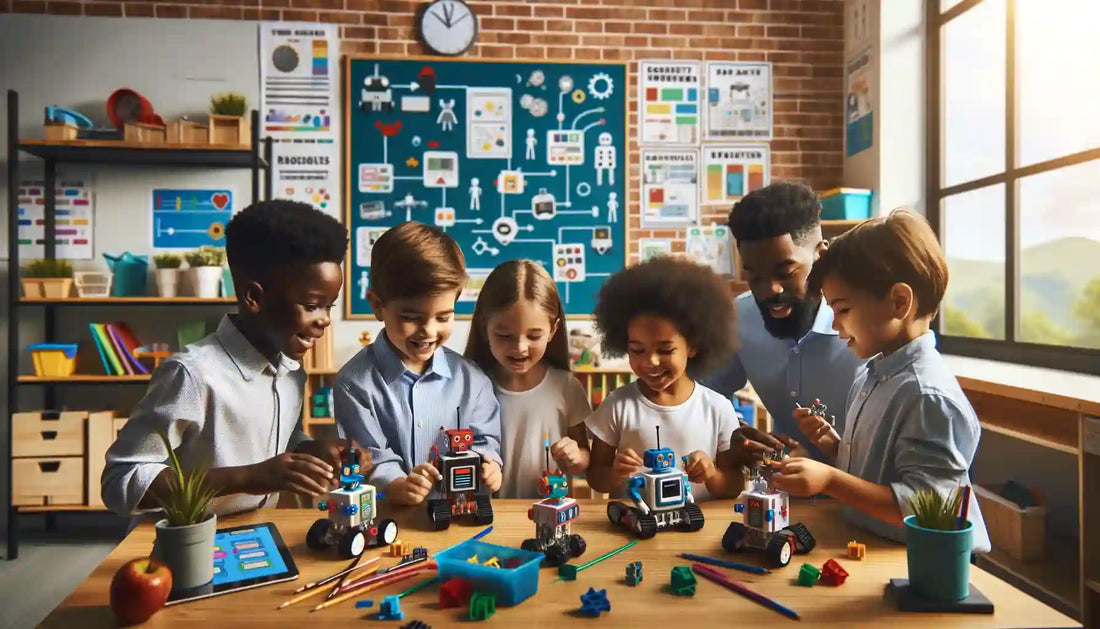Table of Contents
What is Project Based Learning in Kindergarten?
Project based learning (PBL) in kindergarten is a teaching method where children learn by actively engaging in real-world and meaningful projects. It involves exploring, problem solving, and collaborating, fostering hands-on learning and creativity in young learners.
Why important Project Based Learn for Kindergarten Students?
According to Maria Montessori, one of the pioneers of the educational community:
"In PBL, children are not just passive recipients of information but active participants in their learning journey. They engage in activities that are meaningful and relevant to their lives, which fosters a love for learning and independence."
Thanks to scientific studies in the field of education, we learn different things about child education every day.
For example, while just 100 years ago we thought that education by rote memorization was a good thing, today we try to keep our children away from memorization and encourage them to question.

Or, while we thought that mathematics was only the ability to perform operations, today mathematics is not just addition and subtraction. It is a tool that develops our skills such as analytical thinking and finding quick solutions.
Because the world is changing very fast now. People who can produce quick answers and think differently adapt better to this world.
Educators and scientists who are aware of this think that project-based learning is one of the most logical educational methods.
Because projects cannot be memorized, because projects pose problems, because projects develop manual skills, because projects provide analytical thinking skills. And all this allows your child to adapt to the future faster. This is a blessing, especially for kindergarten-aged students who are open to learning.
In Which Areas Do Kindergarten Students Improve with Project Based Learning?
Project-Based Learning (PBL) in kindergarten settings fosters development in several key areas:
-
Cognitive Development: PBL encourages critical thinking and problem-solving skills. Children learn to analyze situations, ask questions, and seek solutions, enhancing their cognitive abilities.
-
Social Skills: Working in groups on projects teaches children how to collaborate, share ideas, communicate effectively, and resolve conflicts, which are essential social skills.
-
Emotional Intelligence: Engaging in projects with peers helps children understand and manage their own emotions, as well as empathize with others, fostering emotional maturity.
-
Creativity and Innovation: PBL allows children to express themselves creatively and think innovatively, as they are often tasked with coming up with unique solutions to problems.
-
Motor Skills Development: Many projects in kindergarten involve activities like cutting, drawing, building, and crafting, which are excellent for developing fine motor skills.
-
Language and Literacy Skills: Projects often involve reading instructions, discussing ideas, and presenting findings, which enhances language acquisition and literacy.
-
Mathematical Understanding: Through projects that involve counting, measuring, and pattern recognition, children develop foundational mathematical skills.
-
Scientific Thinking: PBL encourages exploration and experimentation, key components of scientific thinking and inquiry.
-
Self-confidence and Independence: Successfully completing projects boosts children’s self-confidence and promotes a sense of independence and responsibility.
-
Cultural Awareness and Global Perspective: Projects that involve learning about different cultures or global issues broaden children’s perspectives and foster an understanding and appreciation of diversity.
5 Example of Project Based Learning Activities for Kindergarten
Since we are a company in the field of robotic coding that supports STEM education, I will present you more projects from the field of robotic coding here. But don't worry, if you have any questions for us, we would like to help you. Feel free to write to us:
- Two Player Thermometer Game: Children to make their own digital thermometers and forecast the weather.
- Show Your Reaction Project: A very fun reflex game.
- Number Guessing Game: This project is a fun experience designed to test your math skills, improve problem-solving skills, and hone your mental abilities.
- Happy Tail Project: In this project, a servo motor works its magic to create a movement that resembles a tail. You are free to add this intriguing motion to any figurine of an animal you like; we went with a mouse, but the possibilities are endless!,
- Truth Or Dare Project: We invite you to elevate the experience of a traditional game “Truth or Dare” by integrating it with Raspberry Pi and an OLED display.
If you want more please check;
STEM Activity Ideas for Kindergarten




